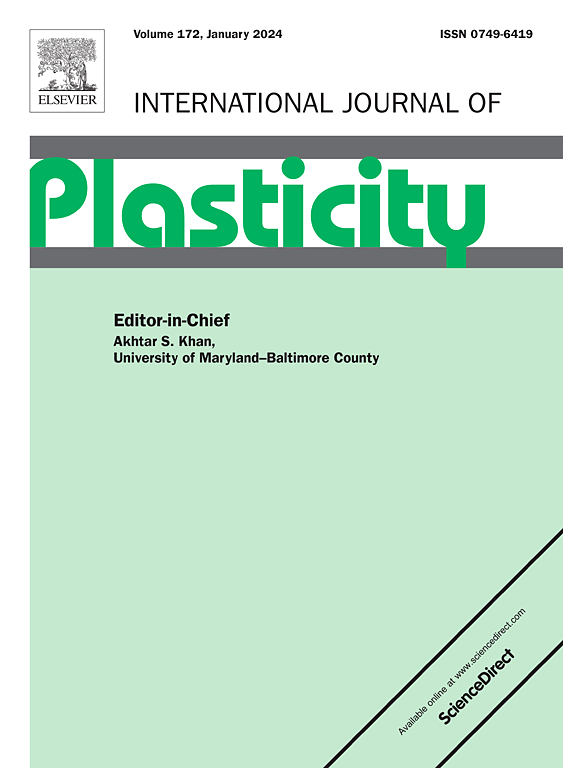The influence of mineral inclusion on the effective strength of rock-like geomaterials
Abstract
The influences of microstructure on the macroscopic mechanical behavior of a composite with a porous matrix reinforced by mineral inclusions are investigated in the present work by both numerical and theoretical methods. The mineral inclusions are embedded at the mesoscopic scale and much bigger than the pores which are located at the microscopic scale. In order to consider the properties of the studied rock-like geomaterials, such as the dissymmetry between tension and compression, the solid phase at the microscopic scale is assumed to obey to a Drucker–Prager criterion. Based on the studied microstructure, the Fast Fourier Transform (FFT) based numerical method is firstly adopted to investigate the macroscopic plastic yield stress of the studied composite. Different microstructure having different volume fraction of inclusion, micro-porosity and frictional coefficient of the solid phase are considered. Based on these numerical results, the existing theoretical yield criterion is estimated. One finds that it should be improved for the case of a microstructure having a high inclusion content. Then, a new macroscopic yield criterion is constructed in the present work by using the modified secant method. This criterion ameliorates fundamentally the one proposed in Shen et al. (2013), specially for the case of a deviatoric loading. It is then estimated and validated by comparing with the FFT based numerical results which were carried out in this work with different volume fractions of heterogeneous phase.

 求助内容:
求助内容: 应助结果提醒方式:
应助结果提醒方式:


